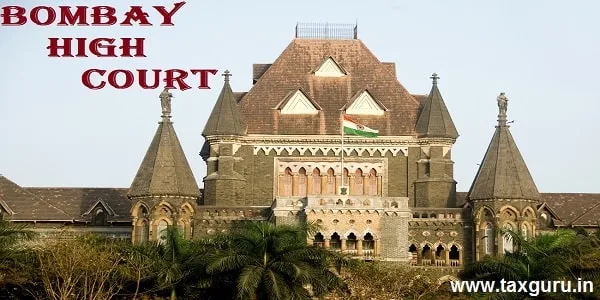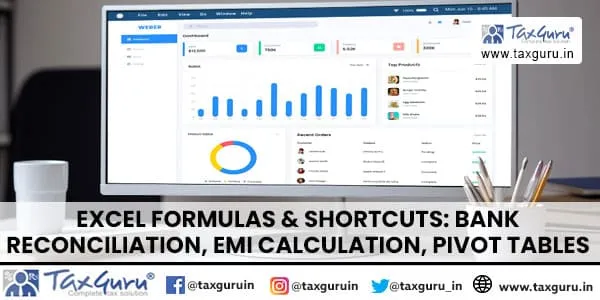Case Law Details
Karur Vysya Bank Retirees Vs DCL (Madras High Court)
Whether retired employees can form a Trade Union?
Let us discuss the provisions of the Trade Unions Act 1926. It is pertinent to note here that section 4 of the Act says any seven or more members of a trade union can apply for registration of a Trade Union by subscribing their names in the Trade Union Rules and by otherwise complying with the provisions of this Act with respect to registration, apply for registration of the Trade Union under the Act. Section 6 encompasses certain provisions mandatory for the Trade Union Rules. Here also there is no objection for registration of Trade Union for retired Employees. So in the Act, there is no discrimination between the existing employees and the retired employees.
In this case, the Deputy Commissioner for Labour rejected the application of retired employees of Karur Vysya Bank for the formation of the Trade Union because they are not in service at the time of application. The retired employees formed the association to espouse their grievances, including their right to pension and other benefits since the existing trade Union is not taking their grievances widely. There was no dispute that the members of the Association were retired employees of the Bank. By setting aside the order of the Deputy Commissioner of Labour, the Madras High Court said that the Authority cannot reject the application of the Association for the formation of a Trade Union by saying that they are not employees on the roll because the act does not make any discrimination between retired employees and existing employees.
Hon’ble high court held that, The Authority has no right to reject the application by narrowing the provisions under the act, that is against the very object of the Trade Unions Act and it is violative of Article 19(1) (c) of the Constitution of India.
FULL TEXT OF THE HIGH COURT ORDER / JUDGEMENT
This Appeal has been filed to set aside the order dated 26.10.2016 passed in O.M.A3/5794/16 by the Respondent, namely, Deputy Commissioner of Labour I, Chennai, who is the Authority under the Trade Unions Act, by which, the request of the Appellant Association (hereinafter referred to as ‘the Association’) to register its Association was negatived by the Authority on the ground that the members of the Association are not in service.
2. It is not in dispute that none of the members of the Association are in employment of the Bank, though they were ex-employees of the Bank. It is the case of the Association that the members of the Association had decided to form an Association to espouse their grievances, relating to pension and other benefits, as the existing Trade Union is not widely bringing out their grievances. It is the further case of the Association that the issue regarding the eligibility period for the purpose pension can be raised in the form an Industrial Dispute and it cannot be done by an individual or he cannot approach the Civil Court for the relief. It is submitted that the individual is also barred from approaching this Court by way of Writ Petition, as the Court may shut the doors on the ground that the disputed question of fact cannot be gone into before this High Court.
3. According to the learned counsel for the Appellant, a reading of Section 2(g) of the Trade Unions Act, 1926 (in short ‘the Act, 1926’) shows that it authorizes any person who was in employment to form an Association, which should be registered under the Act, 1926. Though the employer, Workmen and industrial dispute have not been defined under the Act, 1926, the Industrial Disputes Act alone can be invoked for the purpose of raising a dispute with regard to the issue falling under Section 2(k) of the Industrial Disputes Act, 1947, It is stated by the learned counsel for the Appellant that the mandatory requirement is that a group of seven persons can only form an Association and in that event, it is obligatory on the part of the Authority to register the Trade Union, unless or otherwise there are any obstacles like reflection of very same name or any other issue concerned or that are prohibited under the 1926 Act. It is further stated by the learned counsel for the Appellant that when the minimum requirement is seven even after amendment in 2002, substituted by Act 31 of 2001, which came into force from 09.01.2002, it is not right on the part of the Authority to reject the registration of the Association.
4. M. Sricharan Rangarajan, learned Special Government Pleader (CS) appearing for the respondent has vehemently contended that the persons, who are on roll can only make such application for registration of the Association under the Act, 1926 and even after amendment in the year 2002, there was no deletion of any mandatory requirement. He has further contended that a reading of the words used in Section 2 (e), (g) and 22 (1) & (2) makes it very clear that there shall be persons actually engaged or employed in an industry with which the Trade Union is connected and in the absence of such stipulation, the Authority is empowered to reject the application. On the date of application, there should be a group of seven persons and in case the number is reduced, still the Authority is empowered to register the Trade Union, but making an application with seven persons, who retired from service and are not connected with the employment on the date of application is not permissible in law and it will set a bad precedent for other similarly placed persons to knock at the doors of Registrar of Trade Unions to register their Association.
5. The learned Special Government Pleader (CS) has submitted that there are two judgments with regard to registration of Trade Union, viz., a judgment of Karnataka High Court in the case of Government Tool Room and Training Centre’s Supervisory and Officers’ Association, Bangalore and another vs. Assistant Labour Commissioner and Deputy Registrar of Trade Unions, Bangalore Division-I, Bangalore and others, reported in (2002) 2 LLJ 330 (Karnataka) and another judgment of the Bombay High Court in Bajaj Auto Ltd., vs. State of Maharashtra, reported in 2018 (3) Mh.L.J. 466. Out of these two judgments, though the finding of the Karnataka High Court does not support the case of the Respondent herein, the other judgment of the Bombay High Court is otherwise.
5.1. In Government Tool Room and Training Centre’s Supervisory and Officers’ Association, Bangalore and another vs. Assistant Labour Commissioner and Deputy Registrar of Trade Unions, Bangalore Division-I, Bangalore and others (cited supra), it has been held as follows:
“4. After hearing the learned Counsel, I have carefully perused the impugned endorsement. The registration was refused on the ground that the supervisory officers and managers are not ‘workmen’ within the meaning of Section 2(s) of the I.D. Act. The question that requires consideration by this Court is as to whether the non-workmen under the I.D. Act have a right to form a Trade Union in terms of the Indian Trade Unions Act of 1926.
5. The Trade Unions Act of 1926 is a pre-Constitution Law. The object of the Trade Unions Act is to provide for the registration of a Trade Union and in certain respects to define the law relating to Trade Union. Section 2 defines various terms including ‘Trade Dispute’ and ‘Trade Union’. Chapter II provides for registration of Trade Union. Section 5 provides for an application being made for registration to the Registrar, Section 6 provides for provisions to be contained in the rules of a Trade Union. Section 7 provides for power to call for further particulars in the matter. Registration is provided under Section 8 of the Act. To understand the dispute between the parties, it is relevant to note the two definitions in Section 2(g) and 2(h). The said definitions read as under:
“(g) “Trade Dispute” means any dispute between employers and workmen or between workmen and workmen, or between employers and employers which is connected with the employment or non-employment, or the terms of employment or the conditions of labour, of any person and ‘workmen’ means all persons employed in trade or industry whether or not in the employment of the employer with whom the trade dispute arises; and
(h) “Trade Union” means any combination, whether temporary or permanent, formed primarily for the purpose of regulating the relations between the workmen and employers or between workmen and workmen, or between employers and employers, or for imposing restrictive conditions on the conduct of any trade or business, and includes any federation of two or more Trade Unions”.
6. In the light of these two definitions, it is clear to me that the word ‘workmen’ under the Trade Unions Act includes all persons employed in a Trade or Industry. It is not a restricted definition as in any other enactment of Labour Laws. When the Act itself provides for a wider definition and for a wider meaning of that definition, the Courts cannot narrow it by its decision. That would be against the very object of the Trade Unions Act itself. It is a well-settled principle of law that two conditions are necessary for interpreting an earlier enactment in the light of the provisions of a later Act. They are:
(1) The two Acts of the Legislature must be in pari materia, that is to say that they form a system or code of Legislature; and
(2) The provisions in the earlier Act is ambiguous.
7. In the case of hand, there is no ambiguity in the light of the definitions of the Trade Unions Act. It is relevant to note the judgment of the Supreme Court in the case of Tirumala Tirupati Devasthanam v. Commissioner of Labour1. The Supreme Court was considering in the said case with regard to registration of a Trade Union. The Supreme Court in para 4 rules as under:
8. The Supreme Court, in the said judgment has made it clear that any group of employees may be registered as a Trade Union under the Act for the purpose of regulating the relations between them and their employer or between themselves. It is pertinent to refer to a leading case of this Court in Registrar of Trade Unions in Mysore v. M. Mariswamy2. That was a case in which the employees of the Provident Fund Organisation got themselves registered under the Trade Unions Act. The said registration was subsequently withdrawn by the Department. The said withdrawal was the subject-matter of a litigation. The said litigation ultimately reached this Court. This Court in para 7 rules as under:
“It would be apparent from this definition that any group of employees which comes together primarily for the purpose of regulating the relations between them and their employer or between them and other workmen may be registered as a Trade Union under the Act. It cannot be disputed that the relationship between the appellant and the workmen in question is that of employer and employee. The registration of the association of the said workmen as a Trade Union under the Act has nothing to do with whether the said wings of the appellant are an ‘industry’ or not. We are, therefore, of the view that the High Court went into the said issue, although the same had not arisen before it. Since the findings recorded by the High Court on the said issue, are not germane to the question that falls for consideration before us, we express no opinion on the same and leave the question open”.
“It is clear from the definition of the expression ‘Trade Union’ that it could be a combination either of workmen or of employees or of both, provided it is formed primarily for one of the purposes mentioned in clause (h) of Section 2 of the Act. It is, therefore, possible to have a Trade Union consisting only of employers. The emphasis in Section 2(h) is on the purpose for which the Union is formed and not so much on the persons who constitute the Union”.
9. In the light of the judgment of the Supreme Court and in the light of the judgment of this Court read with definitions in the Trade Unions Act, it is clear to me that the emphasis is on the purpose for which the Union is formed and not so much on the persons who constitute the Union. In the case on hand, the registration is not granted on the ground that the persons who constitute the Union are not workmen. Therefore, in the light of a clear definition and in the light of the case-laws, the endorsement has no legs to stand in law. The endorsement, in these circumstances, is set aside. A direction is issued to the respondents to register the petitioner as a Trade Union, if the petitioner otherwise fulfils all other legal requirements in terms of the Trade Unions Act. Petition is allowed in the above manner. Parties to bear their respective costs.”
5.2. The learned Special Government Pleader has fairly conceded that though the Bombay High Court in Bajaj Auto Ltd., vs. State of Maharashtra (cited supra), had rendered a finding against registration of a Trade Union, the issue is on a different subject, as the Appellant therein had not fulfilled the required criteria, as stipulated in the relevant provisions of the Act therein. It was argued on the side of the Respondent that the Authority was right in rejecting the request of the Association, as none of the employees, who sought to register the Association are regular employees of the Bank and all the persons, who are concerned with the present case or the members of the Association are retired employees. Hence, it was prayed that the present appeal has got to be dismissed in limine.
6. Heard the learned counsel for the Appellant and the learned Special Government Pleader (CS) appearing for the respondent and also perused the material documents available on record.
7. It is seen that the members of the Association, whose names are referred to, were pension. The question whether the members have any issues with the Bank need not be gone into in the present case. The present issue to be decided is, whether the Authority was right in refusing to register the Association. The main plea that was raised on the side of the respondent is that Section 2(g) of the Act, 1926 is not applicable to the Appellant Association, as it pertains to trade dispute, which means any dispute between employers and workmen or between workmen and workmen or employers and employers, connected with the employment.
8. It is pertinent to mention here that the words used in Section 2(g) of the Act, 1926 are that the dispute between employers and employees, which means that even the past employees, i.e. employees ceased to be in employment are also entitled to b a part of Trade Union for the purpose of raising a dispute. That being the case, the Authority was not right in refusing to register the Trade Union and the order of rejection is incorrect.
9. The learned Special Government Pleader (CS) has also referred to the provisions of Sections 4 (1) and 6 (e) of the Act, 1926, which reads as follows:
“4. Mode of registration.—1 Any seven or more members of a Trade Union may, by subscribing their names to the rules of the Trade Union and by otherwise complying with the provisions of this Act with respect to registration, apply for registration of the Trade Union under this Act:
Provided that no Trade Union of workmen shall be registered unless at least ten per cent. or one hundred of the workmen, whichever is less, engaged or employed in the establishment or industry with which it is connected are the members of such Trade Union on the date of making of application for registration:
Provided further that no Trade Union of workmen shall be registered unless it has on the date of making application not less than seven persons as its members, who are workmen engaged or employed in the establishment or industry with which it is connected.
6 Provisions to be contained in the rules of a Trade Union. — A Trade Union shall not be entitled to registration under this Act, unless the executive thereof is constituted in accordance with the provisions of this Act, and the rules thereof provide for the following matters, namely:—
(a) to (d) ……
(e) the admission of ordinary members who shall be persons actually engaged or employed in an industry with which the Trade Union is connected, and also the admission of the number of honorary or temporary members as office-bearers required under section 22 to form the executive of the Trade Union.”
10. By referring to the above, it was contended that in adherence to the afore-stated provisions, the application was rejected. The said contention cannot be accepted and the same is liable to be rejected for the reason that if such an interpretation is given, the very provision itself would become obsolete, as rightly pointed out by the learned counsel for the Appellant. Section 6 of the Act, 1926 prescribes Rules to be followed at the time of registration and Section 6(f) of the Act, 1926 stipulates as follows:
“(f) the conditions under which any member shall be entitled to any benefit assured by the rules and under which any fine or forfeiture may be imposed on the members;”
A close reading of Section 6(f) amply proves the fact that a member can be either a regular employee or a retired employee and therefore, the act of the respondent in mechanically rejecting the application for registration of the Trade Union of the Association cannot be accepted and is unsustainable.
11. Referring to Section 22 of the Act, 1926, an argument was advanced by the respondent that at least five persons, who are actually engaged or employed in an industry with which the Trade Union is connected on the date of making application, alone can seek for registration of the Trade Union. At the first instance, it is to be noted that the provision deals with the Office bearers, as the explanation to section 22(2) needs to be kept in mind that is to say, an employee who is retired or who has been terminated shall not be construed as outsider for the purpose of holding office in a Trade Union and therefore, the said provision will not be helpful to the respondent. Hence, it can be said that there is no bar for a Trade Union, which was formed by retired employees, being registered by the Registrar of Trade Union.
12. Even though in the year 2002, an amendment to the Act, 1926 was brought in, it no way curbed retired employees or prohibited them to form an Association and the word employed / engaged has got to be interpreted in such a way that it will include not only persons, who are on the Roll, but also were on the roll. Hence, this Court is of the view that the Authority is bound to register the Association formed by the retired employees, unless there are any prohibited ground for non registering the In case the Authority finds that the object of formation of the Association is not for espousing the cause of its employees and deviates the conditions stipulated under the Act, 1926, then it is open to the Authority to refuse such registration, but not on the ground that the retired employees will not be entitled to from an Association, thereby discriminating them from the employees, who are on the roll.
13. India is a democratic country, where there is no restriction for the citizens to express their grievances to Government by means of Ahimsa and as such, preventing one sect of persons, namely, retired employees to form a Trade Union to espouse their cause to the Government cannot be permitted at any cost, by giving a different interpretation to the provisions of law. The word used under the Act, 1926 is “persons actually engaged or employed in an industry with which the Trade Union is connected” and it might be including all persons irrespective of whether they are in service or retired. When the Act itself provides for an extended meaning / definition, the Authority concerned cannot narrow the definition to simply reject the application, as it would definitely be against the very object of the Trade Unions Act itself and is also violative of Article 19(1)(c) of the Constitution of India.
14. Admittedly, the retired employees will not be permitted to join hands with the Association of the current employees, as the nature of grievances being faced by either of them will be on a different path and both cannot be mingled together for espousing the same to the industry with which they are actually connected, unless or otherwise the retired employees have a separate track / wing to espouse their grievances. Therefore, in the considered opinion of this Court, the order dated 10.2016 passed by the Authority has no legs to stand is liable to be set aside.
15. Accordingly, this Civil Miscellaneous Appeal is allowed and the order dated 26.10.2016 is set aside. The matter is remitted to the Authority for fresh consideration with a direction not to reject the request of the Appellant Association, reiterating the very same ground that they are all retired employees and no single employee is on the roll of the establishment or industry with which it is connected.
16. To put it precisely, even if seven employees were not on the roll, they are entitled to form an Association that has got to be registered under the Act, 1926 and the same cannot be refused to be registered on this score. Though the existing Union with permanent employees can espouse the cause of retired employees or others, who were not in employment, on the ground of community of interest, consequent to the absence of such interest in the present days, there is nothing wrong in permitting the retired employees to have their own Association under the Act, 1926, as Unions, having permanent employees on the Roll, are withering away and shirking from their moral responsibilities to espouse the cause of employees, who ceased to be on the roll. Of course, the Association with retired employees cannot in any event raise a dispute pertaining to the service conditions of employees on the rolls. No costs.





















Madras High Court judgement for allowing rgistarion of trade union formed by retired employees of karur vysya bank has been implemented by DLC? or aSLP filed by DLC? now such registrations are allowed?
Thank you Sunitha for the detailed article on this rare topic.